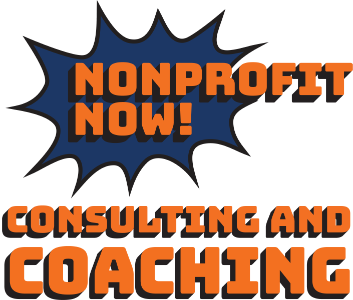|
As I’ve chronicled in a few other posts, I’m training for what I consider to be my first Sprint Triathlon. A few months, I shared that my first attempt went poorly. I never finished as I never got started due to a swim freak-out. Now with the help of a terrific coach, I’ve been seeing solid improvement; more comfort in the water, more endurance and better overall fitness.
Nevertheless, last week I had one of those bad training days – low energy, fatigue and just an overall struggle. My coach asked me what I had eaten before the training session and what my typical recovery approach is. With some embarrassment, I admitted I typically eat almost nothing before a workout. I use an energy gel if I’m working for over an hour and I eat afterward. Truth is, I’ve always felt that food filled me up too much before and eating afterward was my reward. I know – not smart! I’m happy to report that today was the first day of working out with “good calories, carbs and protein before as well as after. What a difference! I never mind putting up a post when likely reactions might be something like: Everybody Knows That or (in slang) Duh! I’m sharing this because as excited I was about this personal revelation, it got me thinking about how focused we can be on feeding our bodies. But what about our minds? Much like our commitment to getting the best performance when engaging in sports, are we demonstrating the same commitment to our intellectual growth? This is critical in professional as well as personal settings. So, surprise! Here are 5 suggestions for DAILY MENTAL STRENGTH TRAINING that will feed your mind with the best and most powerful fuel: Read: For at least 10 minutes if not more and preferably material that develops you, your habits and gets your thinking. Do it to start your day, take a break or wrap up. The 2nd two options can be a welcome break after periods of intense thinking or absorbing professional material. Write: Like reading, block out time each day to get some thoughts on paper. What should you write about? Your choice but my suggestion is experiences that get you thinking – kind of like I’m doing here. Learn something new: Here’s where you can double up. Read about stuff you know nothing about! Go to a website someone recommends that you would have never seen. Just take in new stimuli (athletes will know that this is the opposite of what we do on race day) Take in an opposing perspective: Trust me, I’m not going near politics with this. I’m just suggesting that if, for example, your organization works on hunger or housing and you have a theory of change, look at those of your colleague organizations. Do something that has nothing to do with your profession: Whether it’s exercise, playing music or basket-weaving, do something that gives you a sense of joy and creativity. Again, skip one of your social media breaks and do this instead. You’ll be glad you did.
0 Comments
I’ve been a member of Toastmaster’s for about ten years now. Without a doubt, being a part of it has done more for me than I can possibly describe here. No matter what you do for a living, do yourself and find a club to join (End of plug). This past Friday I showed up for my meeting and was surprised to see I was listed as one of the three featured speakers. Each meeting includes three prepared speeches. Typically, members come to the meeting ready to deliver a planned discussion on a topic of their choice.
Today I had a different choice. I could tell the group that this was a mistake and I would not be delivering a speech today. Or, I could take the next 20 minutes and come up with something that might interest the members of my club. I chose the latter. I decided to share a story about one of my favorite moments from launching a cycling fundraiser several years ago and the lessons I learned from my experience. Was it my best speech ever? No; but the club seemed to enjoy it. Was I happy that I didn’t pass on the opportunity? Absolutely! I’ve shared the story above not to boast but rather to consider the topic of Improvisation or being called on the spot. This skill comes up for us in our professions, personal interactions and other areas. For example, we can be called on to create connecting points with donors as we’re waiting for a formal discussion. Or you may be called on unexpectedly to make introductory remarks at a meeting. It happens. I would suggest that rather than “winging it”, there are ways to prepare to be unprepared. Here are a couple suggestions for always having a few “unprepared thoughts” should you need them: · Keep some tools in your toolbox: Do you have one or two interesting stories about a situation where you overcame a challenge or conflict? If it’s slightly self-deprecating, all the better as you can introduce light humor at nobody’s expense but your own. I’m suggesting this as leading with the weather (no!!), specific jokes, or the latest headlines can be somewhere between dull and potentially offensive; · Take on the challenge: Finding yourself in an awkward or new situation can be scary - no doubt about it. And when it comes up, you’ll probably have a choice. For example, one on one, you can look at the ceiling or bury yourself in the critical information coming in on your phone. Don’t do it. Take a breath and figure out how you can connect with another person or group through real and purposeful engagement; · It’s just a moment in life: It’s a cliché but showing up is half the battle. In this case, speaking – saying anything really – is your win. You may not come up with the next topic for a thesis. But, if you’ve given it your best shot to make the most of a moment, realize that’s what it is. A moment (or two) in your life that will pass. So, seize it! I typically steer clear of book reviews or suggested readings. Posts like these can be valuable; however, I think we’ve all had our share of “what I read on my summer vacation.” I’ll also assume we’re relatively adept at identifying what we’d like to read professionally with the help of countless lists i.e. What are CEO’s Reading? and other shopping tools and apps. I’m making an exception here...
Strangers Drowning: Grappling with Impossible Idealism, Drastic Choices, and the Overpowering Urge to Help by Larissa MacFarquhar is easily the most provocative book on helping I’ve read in years. I use the term “helping” here because identifying this book as one on nonprofits, volunteerism, philanthropy or social justice is too limiting to cover the scope of ideas presented. It touches on all of them and much more. Equally important: In a world of books offering tidy endings and top 3 (5, 10 or some other number) things You Need to Do When You Put Down This Book, Strangers Drowning leaves all that behind. Rather, it raises judgement-free questions, challenges and thinking around the people that populate the world of help; particularly several at the far extreme. If I’m late to the game and you’ve read the book, stop here. If you haven’t, consider a few of the questions raised:
This is just a sampling of course. What I appreciated was that the author doesn’t allow for or even attempt to offer simple answers or solutions. Rather, Strangers, through its blend of bios and philosophy, may intrigue, confuse, provoke and even inspire you. Since I don’t want to appear to be directly marketing the book, I’ll leave it to you to find the book (a simple search will get you there). If you take my suggestion and read it, I’d welcome your thoughts. Email me at [email protected] |
AuthorRobert Grabel is the President of Nonprofit Now! You can find his posts here and at www.robertgrabel.com Archives
October 2021
CategoriesWant to keep getting the latest New Thinking? Click Below...
|


 RSS Feed
RSS Feed
